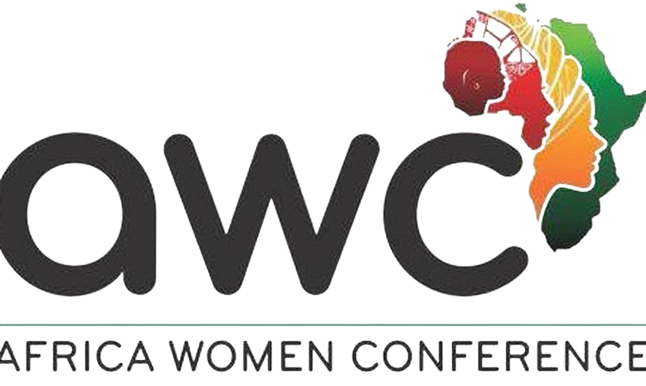
Nation-building is centered on human capital. The young and energetic (i.e. the youths) are, compulsorily, given premium attention in the nation-building process as indispensable assets. This is due to the natural fact that young people embody most of the creative vibrance that drives and secures national progress.
How well the youths of the aspiring nation are organized determines the level of progress the nation makes. The creativity of youth must be nurtured and encouraged to commit its productive best to building the nation, if truly focus is on establishing a sound and successful continent.
The next generation of African leaders must be well-prepared for the tedious task of moving Africa up the progress-gradient within a number of critical development contexts. Among these vital contexts are: Technological Research & Innovation, Africa-centered Education, Nationalistic Politics & Patriotic Governance, Business Development & Economic Management, Mental Health, Transformative Policy Formulation and Institutional Change Management, Inter-Generational Relationship & Partnership.
- Technological Research & Innovation: Technology is fundamental to development in real terms. It is indispensable! Any development race that lacks the facilitation of indigenous technology is mere daydream! Africa needs strong technological backbone to support its development aspirations and their attendant processes. Spread across the continent are young Africans of immense creative potentials in diverse fields of innovation. In the duration of Africa’s subservience to alien development models so far, mass and seemingly endless emigration of talented Africans to Europe, Asia and North America, where conditions are friendly to their creative capacity, has been the norm. Self-tooling is critical to the birth and sustenance of truly prosperous economy. Total reliance on foreign tools or technologies for the attainment of economic success is slavery. It puts and keeps the dependent people, State or country at the mercy of the foreign makers of the technological base of their economic transition. The culture of investing in the talent of creative Africans must be made integral to nation-building processes of African countries. In this wise, emphasis on providing adequate Research & Development (R&D) platforms may be needed in every sphere of activity in terms of number and capacity is necessary. We must continuously provide specialized platforms and the general environment that are conducive to productivity and invention.
- Africa-Centered Education: Otherwise known as Afrocentric education, Africa-Centered Education is basically the mental grooming of an African for him or her to function as a creator of African solutions for African challenges or problems. This educational approach emphasizes the rooting of the African educational curriculum in African culture. For example, the Japanese are educated within the Japanese cultural contexts, by which they are able to engage the needs and aspirations of Japan in ways that produce results that actually favor and uplift Japan. The idea and practice of educating an African within the European (English, French or Portuguese) cultural ambit is not favorable to Africa’s development. It simply programs the Africans to be functional adaptable and favorable to Europe.
- Nationalistic Politics & Patriotic Governance: Nationalism is the philosophical fulcrum for the establishment and sustenance of a development process that transforms the nation to its utmost benefit, not to the advancement of a foreign state or country. In other words, nationalism is the theoretical foundation on which the super-structure of practical and sustainable national progress is built! Africa needs the deep and extensive infusion of nationalist thought in its political culture. In order for the future Africa to grow and excel to the premium benefit of its peoples; irrespective of their socio-economic placement, its future political leaders must be brought-up to understand, appreciate and emphasize nationalistic politics and patriotic governance as indispensable ingredients for Africa’s fervently desired success.
- Business Development & Economic Management: Africa’s business and economic outlook has so far been Eurocentric. In other words, the continent’s business and economic models are imported. They are predominantly alien to the unique resource-endowment and to the natural economic rights of the continent’s humanity. The questioning and elimination of economic partnerships that subject Africa to models that facilitate the colossal daily outflow of the continent’s wealth to Europe and elsewhere beyond its shores have so far been avoided by African leaders. The likes of late Thomas Sankara and late Patrice Lumumba did question and did move in the direction of retiring such models. They were murdered for doing so! Successive defiance of detrimental models ultimately results in their collapse! Future successions of African leaders should not be allowed to imbibe the economic and business disposition of Africa’s past and extant leaders, whose total submission to the business and economic pedagogy of foreign powers has kept African masses working hard daily and sinking deeper every day into poverty and squalor!
- Mental Health: The contemporary world specially targets young people with diverse products and services, many of which are mind-altering. We must understand that as a people, Africans are under attack by foreign imperialist forces seeking to exercise eternal control on the resources of our continent. These forces are skilled at creating means of deep mind-control and psychological manipulation. So far in the duration of the sophisticated and highly mutative war declared and sustained against our humankind, the infestation of our communities with drugs and a broad range of adverse social influences have been widespread. Young citizens are prime targets. Many of them have been irreversibly damaged. Others struggle on the borderline between sanity and outright madness! It is imperative we establish effective processes that secure African youths from lifestyles that are antithetical to mental health. Statutory mental health evaluation must find place in the management of Africa’s leadership echelons. Much as we must encourage young Africans to occupy high leadership positions, we must; as a function of law and policy, send clear messages that leadership in our continent or countries is no longer an anything-goes-affair that it is for Africans with sound mind, the verification of which is statutory, not sentimental.
- Inter-Generational Relationship & Partnership: Transfer of useful knowledge and experiences across generations as well as effective partnerships between generations is critical to sustainable Afrocentric development. Many of our leaders have made grave errors. Others were outright spoilers. There are those of them who did well in their various positions, whose know-how are assets that deserve to be preserved for future use when, where and how necessary. Ego, distrust and apathy are prime factors that sour relations between young and elderly generations of Africans. Young Africans identify themselves as victims of the older generations. The reasons are more obvious than debatable. To close the relationship gap between generations is to reduce the knowledge vacuum in Africa’s leadership echelon. Improved inter-generational relations constitute the atmosphere needed for viable partnerships to be established and kept alive for as long as possible to Africa’s utmost development benefit. Continuous inter-relationship and inter-dependence between the young and old generations of African involved in leadership are indispensable to the birth and sustenance of a sound and successful Africa. In other words, the engine of Africa’s growth-process is populated and entirely controlled by senior citizens who are not in-tune extant global trends. It is here-emphasized that qualified young Africans should be absorbed into places and process of power where critical decisions related to Africa’s development are made. In this regard, the creation and appropriate use of institutions and platforms that bring young and elderly Africans together to share experiences and transfer knowledge is a must!
- Transformative Policy Formulation and Institutional Change Management: Eurocentric and short-term focused policies have done Africa a great deal of harm! The alternative to this obvious liability is Afrocentric and long term policy-formulation. The latter embodies the great transformation that Africa desperately needs to salvage its population from multi-dimensional adversity. It is important for young Africans to be well-exposed and well-groomed to be able to design policies that truly serve the African need and aspiration. In addition to this, ability to manage changes that demand institutional reforms is vital. Change is constant. Progressive leadership is partly rooted in high capacity for adaptation to change which naturally demands re-modification. Leaders who are ill-equipped for change resist new modes that are packed with higher opportunities and with needed progress. Africa’s future leaders must be taught how to adapt to change objectively.
- Beyond Words And Worry: A lot of Africans worry about Africa’s future. They see the broad and worsening array of colossal odds bedeviling the continent and sink into depression. There are those of us who see beyond the tragic African spectra of rot and ruin. There is what is known as The Cycle Of Civilization. Every civilization experiences ebb and flow. I suffice to say that Africa’s season of ebb is in its expiration phase. What is needed is the planning, focus and hard-work required for the continent’s non-delayed return to glory. In this wise and in addition to the prescriptions given above, I suggest the introduction of cultural revisionism across Africa. Every nation must, by law and policy, consistently review its cultural order as a matter of necessity for wholesome, profound and competitive development. It is in having this nation-management practice in-place that the psychological capital that is appropriate for the uniqueness of a people will emerge and function to the elimination of adverse stereotypes and extreme prejudices.
Conclusion
At this juncture, I assert that without policies and institutional reforms that tally with the verve and focus of the prescriptions and arguments here-delivered, none can be established and Africa will not be able to make the progress that they hold out to its existence. Also, Africa’s slow-paced embrace and adaptation to progressive global change is underpinned by the absence and paucity of young talents in its corridors of power
